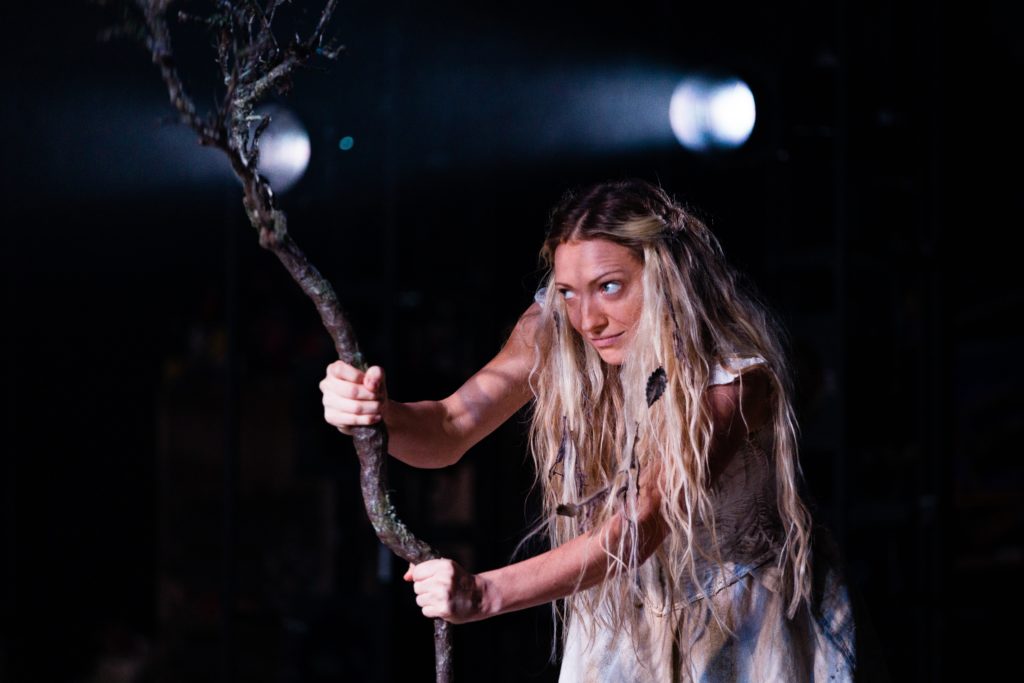
YORK Theatre Royal’s Haunted Season climaxes with Wise Children’s Wuthering Heights, Emma Rice’s long-touted elemental adaptation of Emily Bronte’s gothic Yorkshire revenge tragedy, from Tuesday to November 20.
Company founder and artistic director Rice completes a hattrick of Theatre Royal visits after her stage versions of Angela Carter’s Wise Children in March 2019 and Enid Blyton’s Malory Towers in September that year.
This time, she partners with the National Theatre, Bristol Vic (in the city where Wise Children are based in Spike Island) and the York theatre for a gale-force, folk musical Wuthering Heights, whose tale of love, revenge and redemption is marked by her trademark visual flair, wild humour, puppetry and casting of “rock star” Lucy McCormick as Cathy.
Here Emma answers Charles Hutchinson’s questions as Wuthering Heights seeks to hit new heights.
You call Wuthering Heights a “tragedy”, but reviews have emphasised the “comedy/pastiche”, “the unfaithful storytelling” and the folk musical panache of your interpretation. Have past productions been too serious and Yorkshire-grim?
“I believe that Emily Brontë is an overlooked comic genius. I love comedy and there’s always laughter in my shows, but it wasn’t difficult to bring fun to this adaptation – it’s all there in the text.
“Linton Heathcliff is the most despicably funny character ever written and Lockwood a comedy genius. I hope this production will celebrate Brontë’s sparkling humour as well as her bloody passion.”
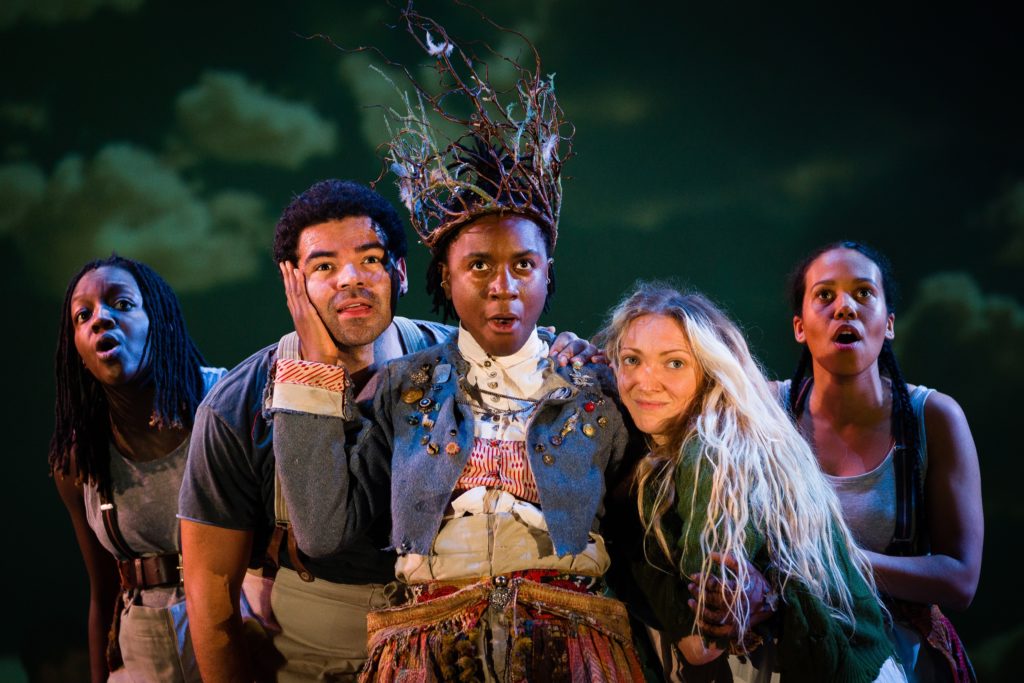
What were the aspects of the story that you most wanted to bring out for a 2021 audience in its transition from Emily Bronte’s Wuthering Heights to Emma Rice’s Wuthering Heights?
“There are several aspects of the show that cast a new ‘21st century’ light on the book, but one thing that stands out is how I see Catherine. I initially saw her as the traditional tortured romantic heroine, then as a bit of a minx. Now I think she’s unwell.
“I think she’s a prisoner of her time: a deeply independent women who is constrained by the limitations of being a woman in the 1800s and who fights against those restrictions until it literally drives her mad. I’ve enjoyed exploring this way of looking at this iconic character with Lucy [McCormick] in the role.”
What made you cast Lucy McCormick as Cathy?
“Lucy is a rock star. Literally and metaphorically! She is pure charisma and has a wildness of spirit that takes my breath away. She is fearless, passionate, seriously sexy and maverick. She was my Catherine from the moment I saw her perform and I cannot believe my luck that she is creating this role with me. I am in awe.”
What do you recall of first reading Wuthering Heights: where, when; how old were you?
“I have always loved the book, though at different times in my life it has meant different things to me. In my teens it was one of the first ‘exam’ books that really got me; it fired up my reluctant teenage brain and dared me to dream of passion and romance.
“In later readings, I was struck by how little love there actually is in the book: it’s brutal and cruel, and this darker version of the book stuck in my mind.
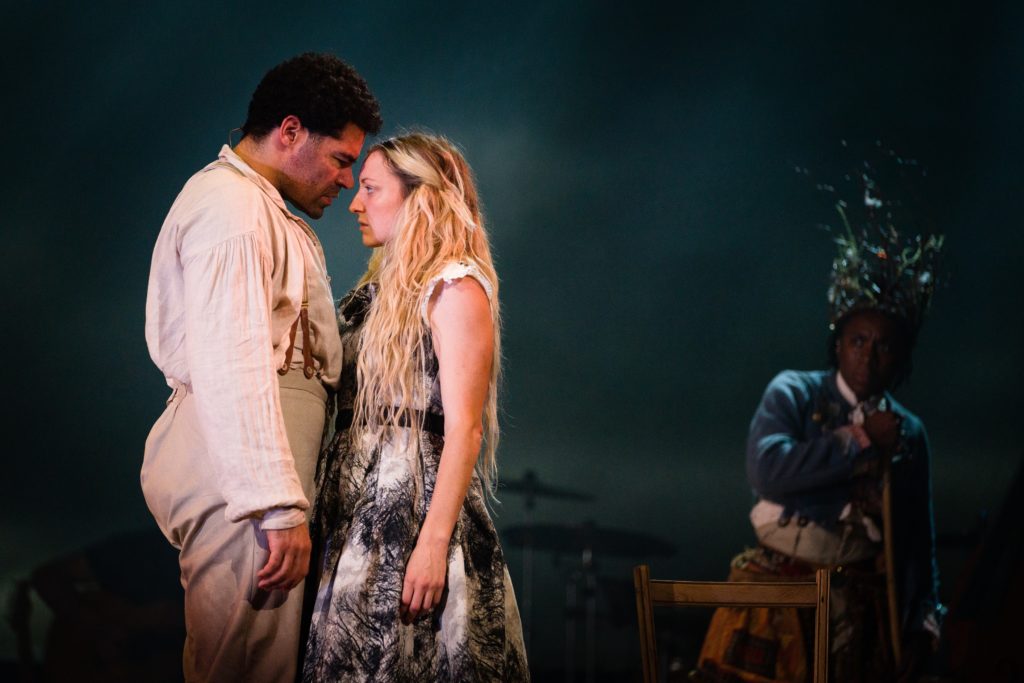
“Then, a few years ago, I was appalled by what I saw at the Calais Jungle and at refugee camps all over the world. I was horrified by the cold negotiations our government was having about how many refugee children we would take in – horrified that this could even be a question a so-called civilised country was asking. Something sparked in my brain. Wasn’t Heathcliff an accompanied child?”
Do you view the book and its writer differently now to when you first read it?
“It blows my mind that this book was written by someone so sheltered. The detail of Cathy’s neurosis and behavioural issues and the depiction of illness is devasting and brilliantly described.
“I wonder if, as a vicar’s daughter, all of life came to the Brontes’ door and that is how Emily knew so much about the human condition. I don’t find the novel unworldly in the slightest. It is brutally honest and frighteningly well observed. It explores, obsession, control, prejudice, jealousy, violence and hope. All themes very much rooted in reality.
“I knew I needed to tell this story and I needed to tell it now. When Heathcliff is found at the Liverpool docks, the way he is treated sparks a series of events that are catastrophic. This is a cautionary tale and a revenge tragedy. Truly a story for our times.”
What does outsider Heathcliff’s story represent in our increasingly intolerant, unwelcoming post-Brexit society?
“For me, Heathcliff, and the way he’s treated by those around him, is the key to the story. On the surface it’s a love story, but deep down I think it’s about kindness and about the danger of not showing compassion to those in need.
“Wuthering Heights is a cautionary tale about what happens when we treat those in need as somehow less than ourselves. This is the driving force of my adaptation: cruelty breeds cruelty. Be careful what you seed.”
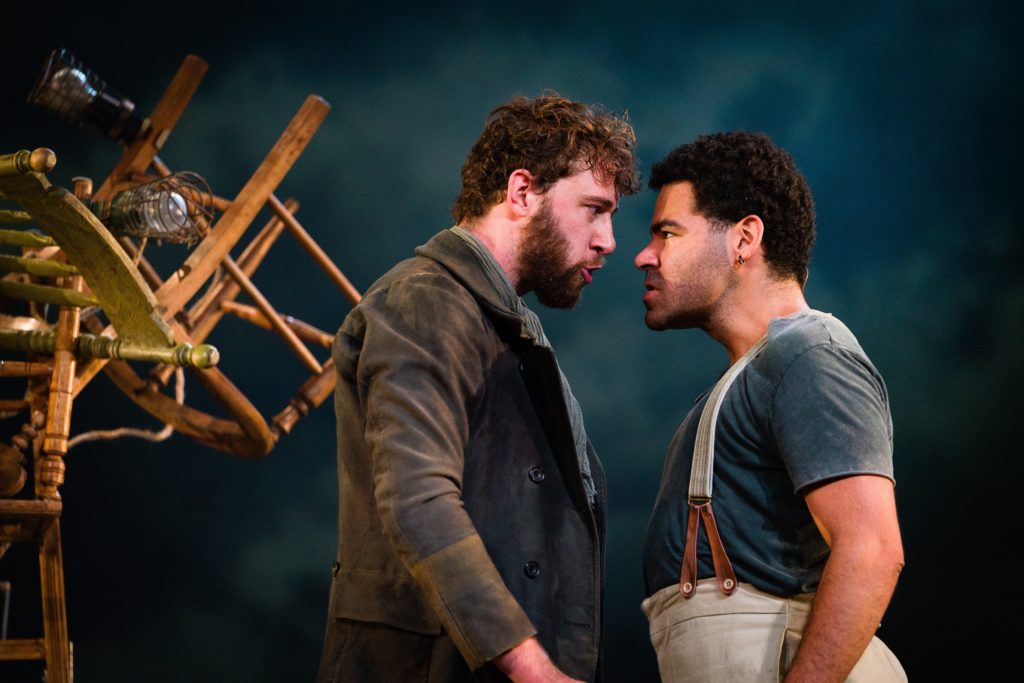
What made you cast Ash Hunter in the role?
“Oh, everything! Ash Hunter is everything I want from my Heathcliff. He has a unique intensity that could stop a train in its tracks and a deep understanding of human love, rage and sorrow. He is one of the finest actors I have ever worked with and when he and Lucy start to fizz together, the planets start to spin. I am beyond words.”
How important is the physicality of the Yorkshire landscape to your production? How do you represent it on stage?
“Hugely important. In fact, I’ve made The Yorkshire Moor a character in the show, played by the jaw-droppingly talented Nandi Bhebhe and the ensemble. The Moor narrates the story, as well as trying – and often failing – to save the characters from themselves.”
Wuthering Heights features a live band. Why is music so integral to your theatre-making?
“Music is important to every part of my life. I love music and can’t imagine making a show that wasn’t full of it. And it feels essential to theatre. Along with storytelling, making music is one of the oldest forms of communication. It’s how we reach across the divide and connect with other humans.
“Wuthering Heights particularly calls for an epic score: it’s an epic novel and needs to be met with everything it demands and deserves. Ian Ross, my long-time collaborator, has composed the most extraordinary score, raw, ravishing and brimful of passion.”
Is it really “grim up north”? If not, why is that the north’s reputation?!
“Haha! I definitely don’t think it’s grim up north, in fact I love it! My family were big campers in the 1970s and many a wet weekend was spent in Derbyshire and Yorkshire. I remember walking up to Upper Withins – the place that is thought to have inspired Wuthering Heights – and being a little disappointed at how small it was. I was intoxicated by the moors though, and the Brontë Parsonage and the sheer wildness of that world.”
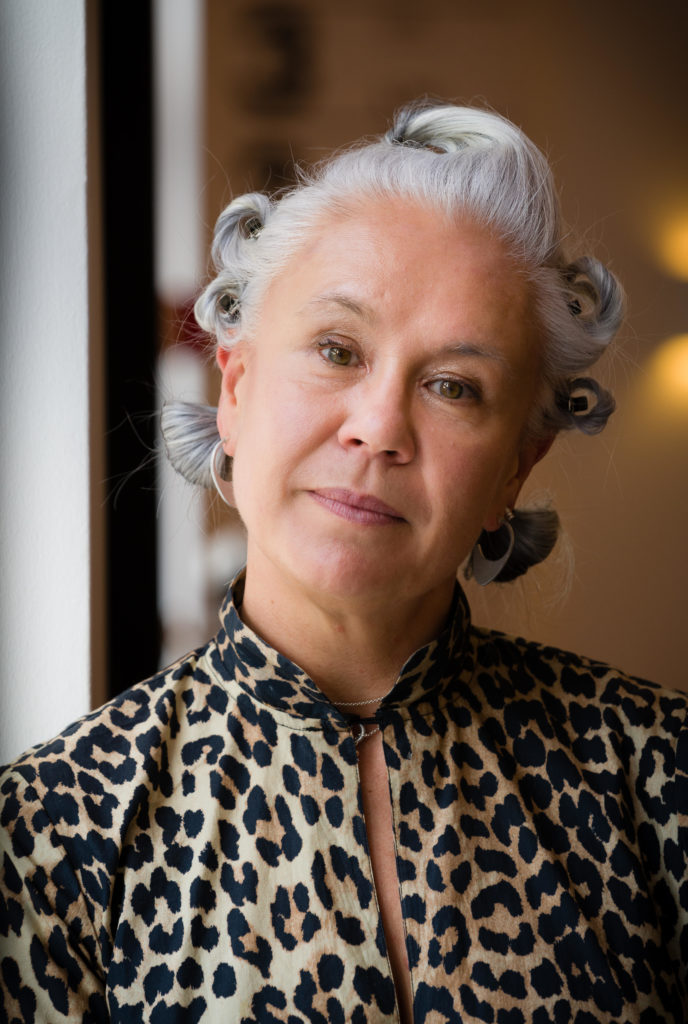
You are building up a relationship with York Theatre Royal for your Wise Children work. Why is forging links with regional theatres, as well as with the National Theatre, important to you?
“York Theatre Royal is Wise Children’s most steadfast collaborator: we’ve made three original touring shows since we launched the company in 2018, and YTR has co-produced all of them! We love working with them and hope to continue doing so long into the future.
“Wise Children’s mission is about making great work and touring it around the country – because we believe that audiences everywhere should have access to the talent and vision that is all too often only seen in the capital.
“We’re also committed to touring the ‘real thing’: we don’t send out a second cast, or a rejigged set – we tour with the original production and cast, making sure that the show is in its perfect form, whether you see it in York or Inverness.”
If someone has never seen Wuthering Heights, or indeed read it, why should they come to your show?
“Because it’s got everything! An epic story, a staggeringly beautiful set, deliriously wonderful music, and a cast of such searing talent that my heart jumps every night. I truly feel this is some of the most thrilling work I have ever made, and I am loving watching audiences respond to it.
“Inspired and emboldened by lockdown, we were determined to bring everything we could to this show – and you can feel the energy in every song, dance, line and action. It is a privilege and a wonder to be making something so important with such an amazingly talented and joyful company.”
Wise Children’s Wuthering Heights runs at York Theatre Royal, November 9 to 20, 7.30pm (except November 14); 2pm matinees, November 11, 13, 18 and 20. Box office: 01904 623568 or at yorktheatreroyal.co.uk.
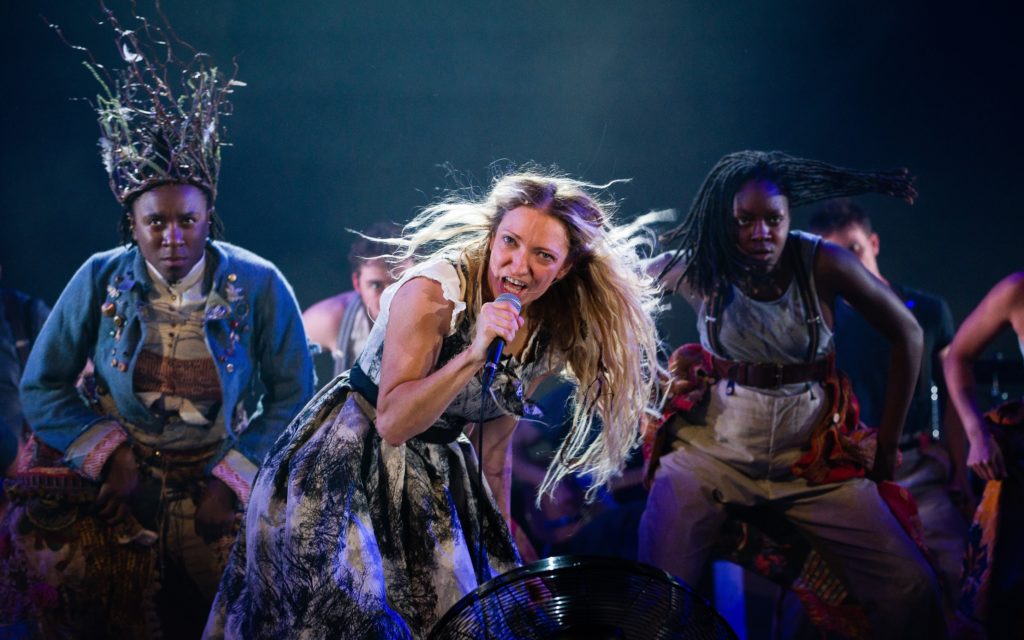
Copyright of The Press, York.
